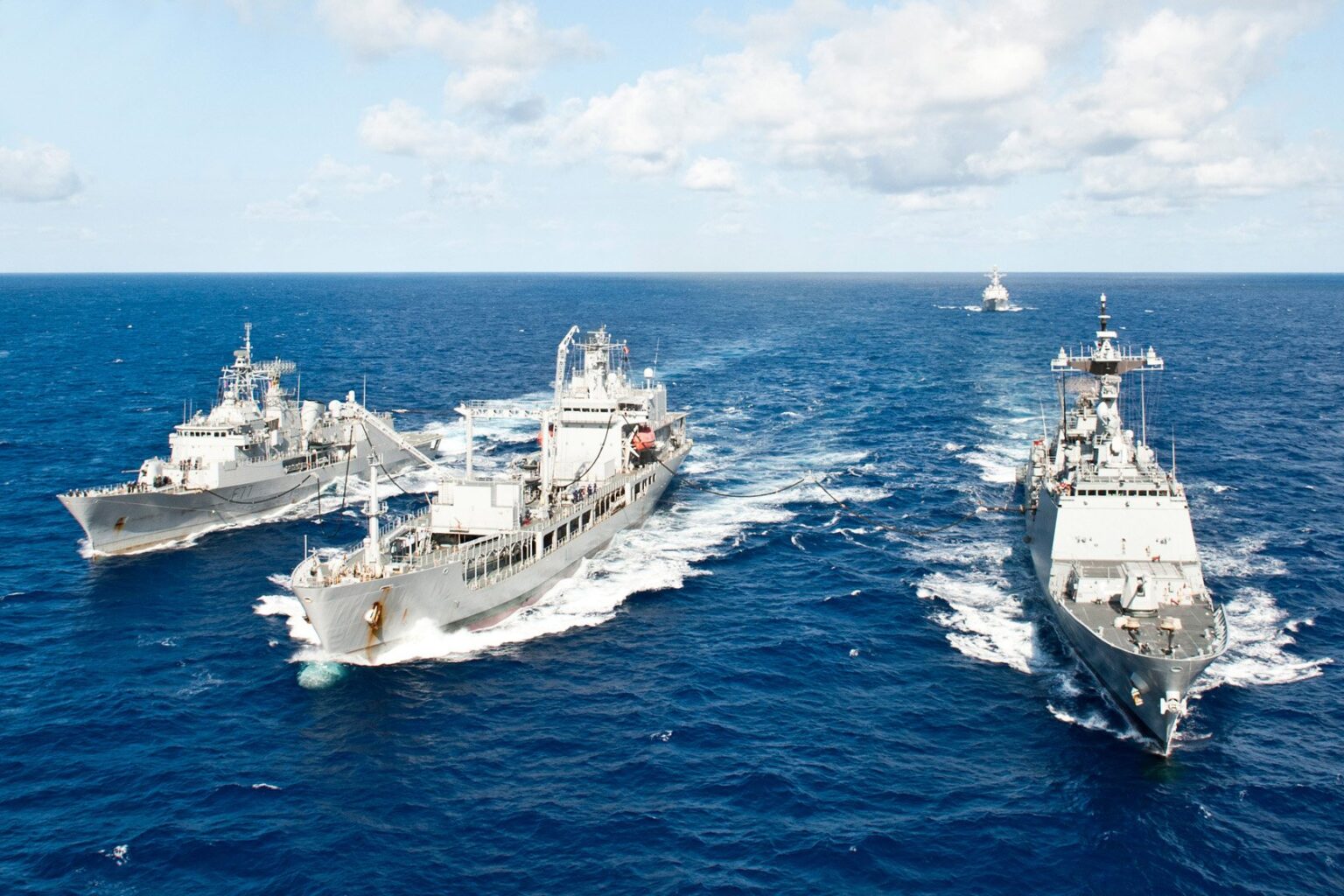China is Reshaping the Maritime Legal Order

Published by The Lawfare Institute
in Cooperation With

Second Thomas Shoal, a drop of dry land in the South China Sea, may be one of the most dangerous spots on earth. It is the site of a rusting Philippine warship, intentionally run aground in 1999. For a quarter century, the Philippines has kept a contingent of marines on board the stranded vessel. But China, which claims the shoal as its own, has interfered more and more aggressively with the resupply of this token force. In June, Chinese coast guard forces reportedly assaulted Philippines personnel involved in the resupply. A few weeks later, a Philippines commander warned that his country would use force if China continued to block its operations.
Hotspots like Second Thomas Shoal have generated waves of alarmed commentary about the threat of conflict in the region. As a treaty ally of the United States, the Philippines figures prominently in many nightmare scenarios. Manila and Beijing nearly came to blows over control of Scarborough Shoal in 2012, a standoff that U.S. diplomats helped mediate (mostly to China’s advantage, it should be noted). But plenty of other countries in the region have beefs with Beijing. Indonesia and China have sparred over resource rights in waters near the Natuna Islands. And Vietnam and China remain bitterly divided about ownership of the Paracel Islands, which China seized by force in the 1970s.
The possibility of military conflict looms over Isaac Kardon’s new book, but his focus is less on whether China’s maritime ambitions will lead to major-power conflict and more on how they will reshape the web of formal agreements and customary practices that make up the maritime legal order. The book is a vital contribution to the broader debate over whether and how China is reshaping the international legal and institutional order.
Since the early 1990s—when the United Nations Convention on the Law of the Sea (UNCLOS) came into force—the international community has coalesced around a more or less common understanding of ocean rules. The product of more than a decade of negotiations, UNCLOS afforded coastal states much more control of nearby waters than they traditionally had. It gave coastal states a plumped-up territorial sea and a 200-mile exclusive economic zone (EEZ), in which the coastal country can control all economic uses of the waters. But the convention also insisted that the high seas should remain open to all states, and it safeguarded freedom of navigation, including through the critical straits that connect larger bodies of water.
As with any complex international treaty, UNCLOS contains myriad ambiguities. Even before the ink on the convention dried, states were squabbling over fine points such as the transit of warships through the territorial sea and the provisions for seabed mining. But there has never been a challenge to the UNCLOS framework quite like the one China is mounting. China ratified the convention in 1996, but it nonetheless claims special rights in the South China Sea that are impossible to square with the UNCLOS text. As Kardon writes, “China’s maritime disputes are the most consequential front in the struggle over what kind of maritime order UNCLOS prescribes.”
Kardon charts a steady course through the maelstrom of Chinese official documents, unofficial commentary, and actions at sea that together form its version of the law of the sea. This is no easy task. Beijing has been studiously ambiguous about many of its claims, and its approach is shot through with inconsistencies. To give just the most glaring example, China has published maps with a “nine-dash line” without explaining what legal claim the famous dashes represent.
With language skills and admirable clarity, Kardon documents China’s approach to maritime zones, maritime resources, navigational rules, and maritime dispute resolution. His account ranges over Asian waters (and even beyond on a few issues). For example, he explains how China determines its maritime “baselines,” the lines that divide internal waters from waters subject to the UNCLOS framework. He tracks how China incentivizes its vast fishing fleets to haul in “sovereignty fish” in disputed waters. And he catalogs China’s reactions to foreign military vessels operating in the region.
In most of these areas, Kardon finds a consistent story: Eager to control its maritime “near abroad,” the Chinese government is advancing a vision of maritime rules that other countries in the region reject. (Brunei is the exception; keen to avoid antagonizing China, it has stayed quiet about most of Beijing’s claims.) The rebuttals range from polite diplomatic statements of opposition to full-fledged legal action, as when the Philippines in 2012 brought China’s claims before an international arbitral tribunal (and, in 2016, won a thumping victory).
(The U.S. government does not like to do so, but it is important to acknowledge a few areas where China is not isolated in its approach to the maritime legal system. Its view that coastal states have a right to exclude foreign military vessels from their territorial sea commands agreement from many countries. And China also gets some quiet nods of approval—including from certain U.S. partners—when it argues that countries can limit foreign military activities in the EEZ.)
But sifting the mountain of evidence he has compiled, Kardon concludes that China has been far more successful at weakening the maritime legal order than at substituting its own version. For the most part, China’s claims are too audacious and its arguments too convoluted to win the support of neighboring states or the international community more broadly. The 2016 decision of the arbitral tribunal in the South China Sea case may not have changed anything at sea, but it stands as a comprehensive and influential rejection of Beijing’s alternative vision for the maritime legal order.
Where does all this leave maritime law? The broad compromise represented by UNCLOS has been shaken, but what will that new debility yield? Kardon says relatively little about this question, but he does acknowledge that the world will likely see more “enclosure” of the oceans and less ocean freedom. It’s hard to disagree. There is no shortage of countries that might welcome the chance to claim more ocean space in a world where maritime rules are fraying. Turkey’s leadership has spoken longingly of a “blue homeland” in the Black Sea and the Aegean. Several Latin American countries claimed vast territorial seas in the 1950s, and they might be pleased to control fishing and other resources in waters beyond the EEZ. Offshore oil and gas may induce other countries to claim more than UNCLOS currently allows. China’s unilateral challenge might just tip the balance against what was always a fragile compromise.
There is another possibility: that China itself will change before it can unravel the maritime order. That change might, of course, come in the form of domestic upheaval, but it might also be a consequence of China’s growing strength and expanding naval fleet. If Beijing begins to conceive of itself less as a regional hegemon and more as a global maritime power, its view of maritime rules may shift. There is precedent for this kind of transformation. Britain in the 19th century abandoned its claims to own nearby waters as it realized that ocean freedom worked to the advantage of the country with the most powerful navy. The Soviet Union in the 1960s became much more friendly to freedom of the seas as it developed a blue water fleet. In short, a global China just might end up seeking to bolster the maritime legal architecture it is busy dismantling.





